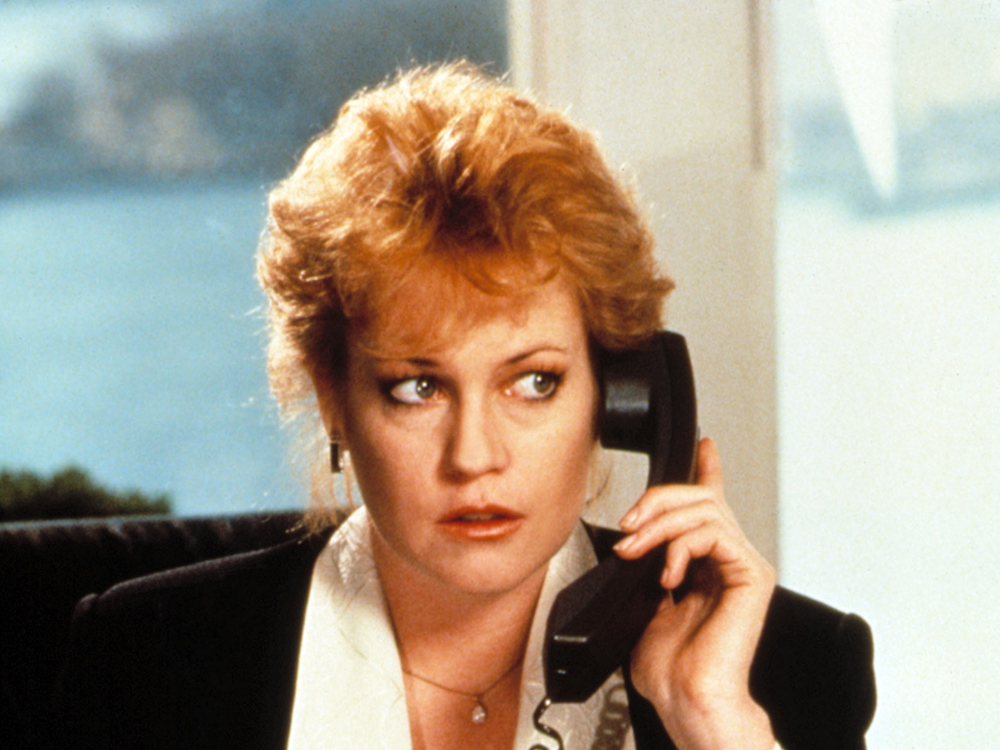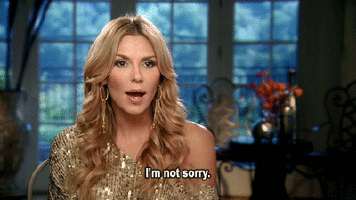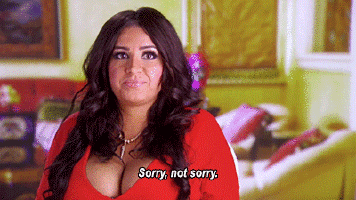Do You Apologise Too Much? Now There's An App To Help You Stop
Because stop apologising you must

Because stop apologising you must
Are you the kind of person who says sorry to people who step on your foot? The kind of person who starts every email by saying ‘so sorry to pester you’? The kind of person who uses ‘just’ in every sentence to make yourself sound a little less pushy?
If you are, you’re probably (definitely) over-apologising – and now there’s an app to help you be more assertive.
Aimed at preventing women from undermining themselves at work, Cyrus Innovations’ ‘Just Not Sorry’ is an extension for Google Chrome that flags up overly apologetic words in your emails and urges you to correct them.
When users write unsure statements like ‘maybe’ and ‘sorry’, the plug-in flags up these phrases and marks them with a spellcheck-esque red line, with the app’s creators saying using unsure phrases like this can minimise’s other people’s confidence in your ideas and abilities.

Source: giphy
CEO Tami Reiss explained the inspiration behind creating the plug-in in a blog post, talking about how, at a brunch for the League of Extraordinary Women, the group was discussing their collective tendencies to say words like ‘just’ and ‘sorry’ when they knew they shouldn’t.
Celebrity news, beauty, fashion advice, and fascinating features, delivered straight to your inbox!
‘The women in these rooms were all softening their speech in situations that called for directness and leadership. We had all inadvertently fallen prey to a cultural communication pattern that undermined our ideas,’ she wrote.
‘As entrepreneurial women, we run businesses and lead teams — why aren’t we writing with the confidence of their positions?
‘There was the desire to change, but there wasn’t a tool to help.’
Reiss explains how, with the spellcheck-like service, the corrections look like you’ve misspelled the words.
‘Because our brains are trained to see that as an error, you immediately go back to edit them. But they are spelled correctly. At which point, you realise it’s because the word is hurting our message,’ she wrote.

Source: giphy
And if you aren’t sure why a certain phrase has been underlined, if you hover over it, you’ll see content from successful women about why you don’t need to use these words.
‘We’ve found in our beta tests that not only does this reduce the use of these terms in email, but it builds mindfulness to avoid them in all written and verbal communication,’ Reiss adds.
‘When someone uses one of these qualifiers, it minimises others confidence in their ideas. Whether you’re persuading an investor to provide funding, announcing a change in direction to your colleagues, or promoting your services to a client, you are building their confidence in you.
‘Qualifiers hint to the reader that you don’t have faith in what you’re saying. The last thing you need is to seem unsure of yourself. We want to make it easy to kick the habit by making it obvious when these qualifiers are holding us back.’
Genius. The app has already been downloaded 27,000 times – and we think being more assertive in the workplace is a pretty good resolution to make in 2016.
Do you apologise too much? Would you use this plug-in? Let us know @marieclaireuk
The leading destination for fashion, beauty, shopping and finger-on-the-pulse views on the latest issues. Marie Claire's travel content helps you delight in discovering new destinations around the globe, offering a unique – and sometimes unchartered – travel experience. From new hotel openings to the destinations tipped to take over our travel calendars, this iconic name has it covered.